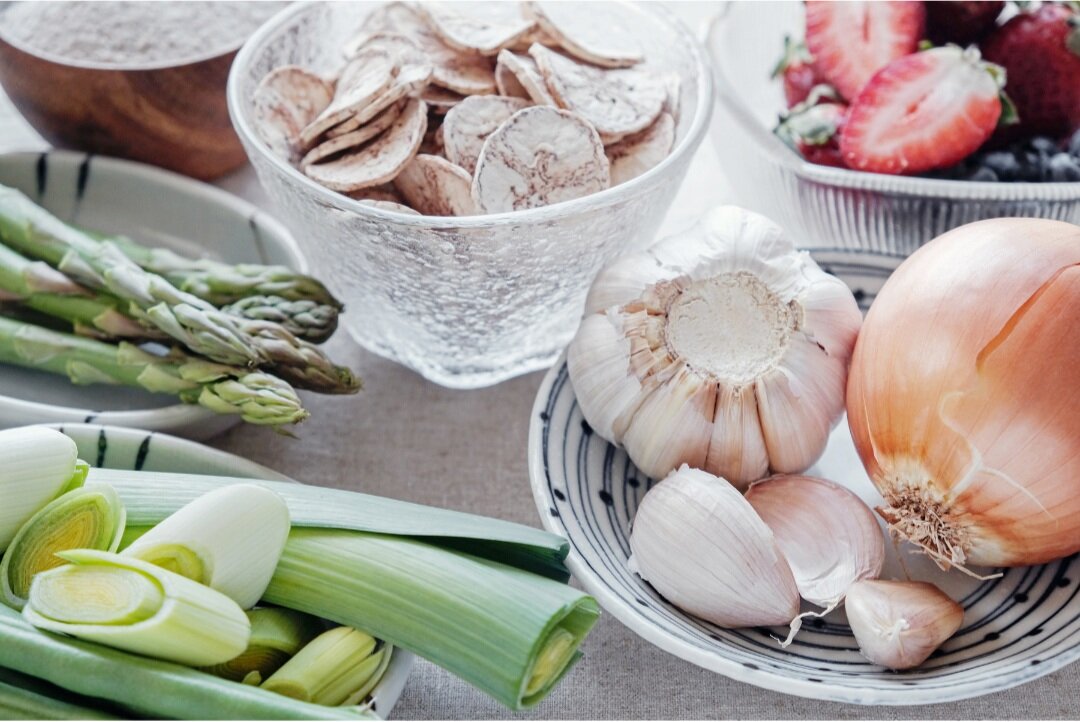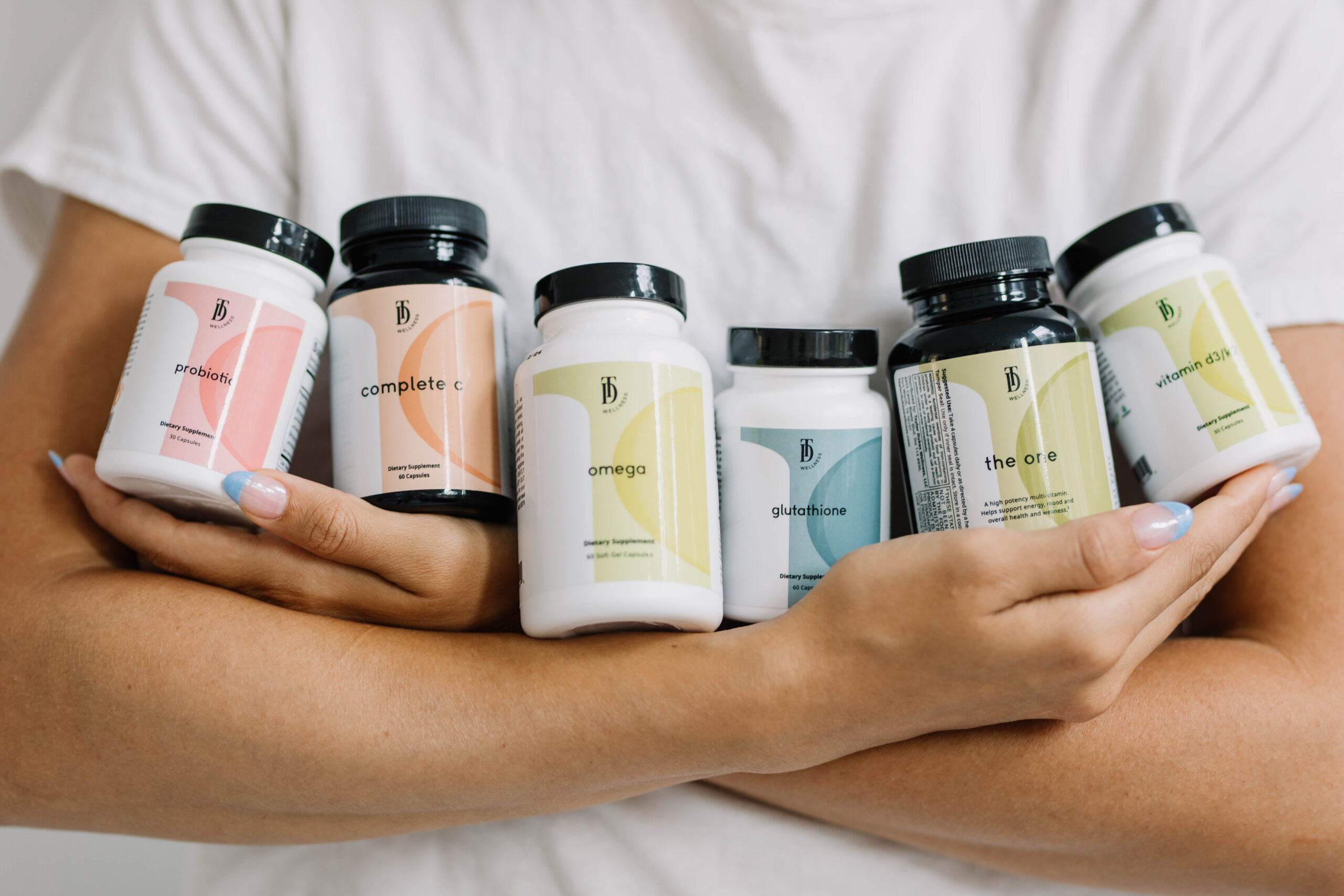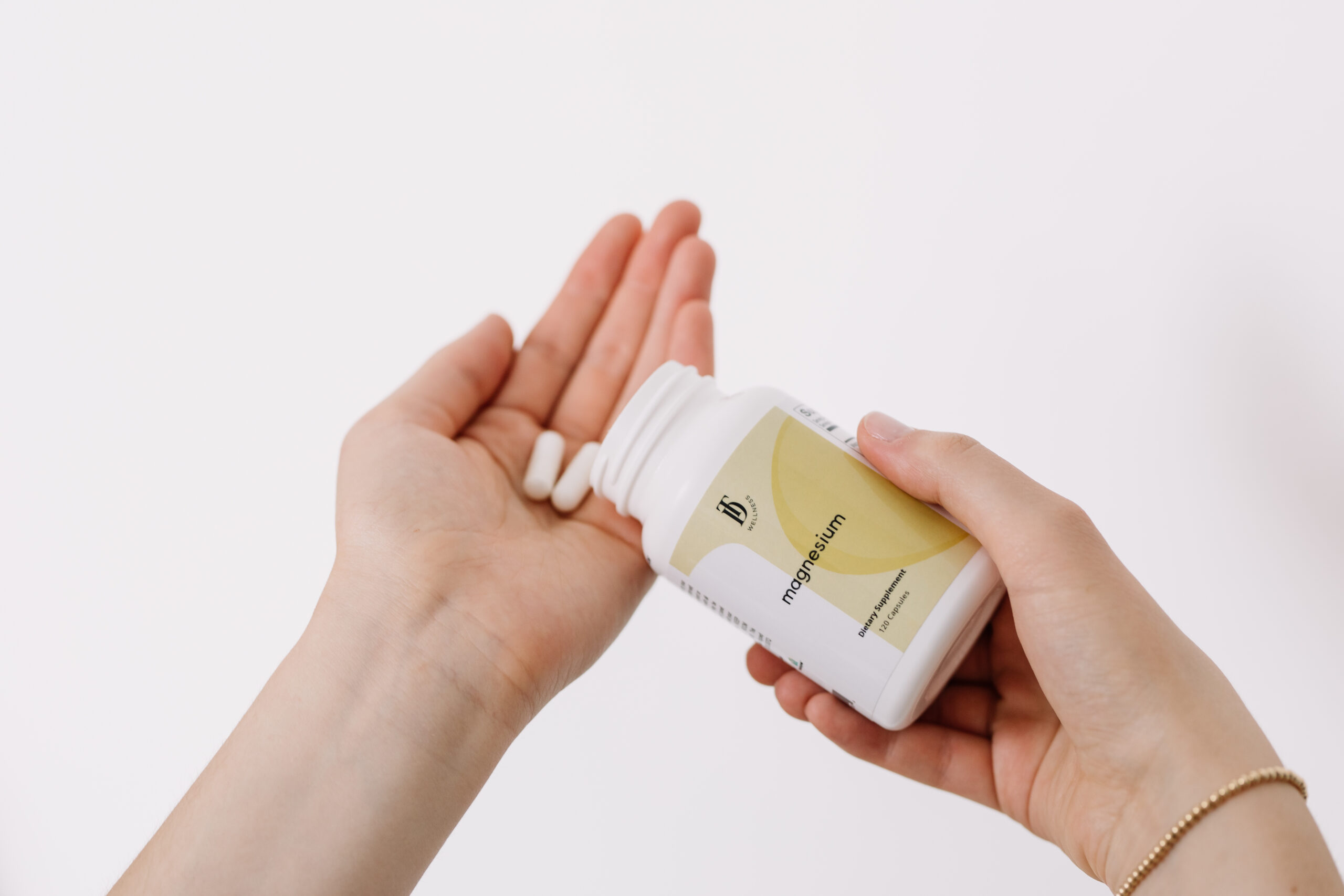You’ve probably already heard or read something about the benefits of probiotics. They can help your digestion, aid in constipation or diarrhea, or maybe even help with yeast infections. You’ve already likely taken some probiotic supplements and have eaten fermented foods like kimchi, miso, pickled foods, sauerkraut, or even downed some kombucha. Research has backed up the benefits of probiotics, but what about prebiotics? Are prebiotics just as beneficial as probiotics?
First, let’s back things up and talk about gut health real quick. Your gut, or gut microbiome, is made up of trillions of bacteria- both good and bad. When the nasty bugs flourish and take over, health problems arise. This can show up as digestive issues, mental or emotional issues, or a suppressed immune system. The point of probiotics is to feed your gut with beneficial bacteria to promote good gut health. So now back to prebiotics… What are these and how do they help your gut?
What are Prebiotics?
If you don’t think you are benefiting from probiotics as much as you should, you may want to consider taking prebiotics as well. Here’s why.
Prebiotics are a type of fiber-rich carbohydrate that your body can’t break down. These prebiotics are food for your probiotics. The prebiotic (aka soluble fiber) acts as the energy source (or fuel) for all those probiotics you are taking. This allows your gut to benefit more from your probiotics, which helps your overall well-being.
Taking probiotics helps to bring in a couple of different strains of beneficial bacteria to your gut. However, you need hundreds to have a healthy gut. While probiotics can help colonize your gut, it’s up to you to keep the population flourishing.
How Are Prebiotics Beneficial?
So now we know that prebiotics feed the beneficial bacteria you gain from your probiotics. This is all to support your gut microbiome. You might be thinking, “well, how do prebiotics work to help your gut health?”.
Like I stated earlier, prebiotics are insoluble fiber. So, in addition to feeding probiotics, the fiber helps move food through the digestive tract more smoothly, helping people who are struggling with constipation.
More importantly, when prebiotic foods break down and probiotics feed on them in the colon, a beneficial short-chain fatty acid called butyric acid is produced. This is the preferred energy source for your cells in the colon. Within your colon cells, butyric acid (also known as butyrate) can have a positive influence on reducing your likelihood of insulin resistance, diabetes, obesity, atherosclerosis, and chronic inflammation. These are just a couple of examples of how prebiotics can impact your gut’s health and your overall health and well-being.
What Are Examples Of Prebiotics?
You can get a good amount of prebiotics from food sources. Here is a list of some prebiotic-rich foods. Note that prebiotic foods are not limited to the items mentioned in this list.
Some people also like to supplement with prebiotics. I would recommend that you get a high quality prebiotic if you choose to go this route.
Can You Take Prebiotics And Probiotics Together?
You might be confused as to when you take probiotics vs. prebiotics. Do you take prebiotics and probiotics at the same time or separately? I personally am a fan of consuming prebiotic-rich foods in my diet and then taking probiotics as needed. There are times and places to focus on both
How To Test The Health Of Your Gut
If you are concerned that your gut health isn’t the best but don’t want to waste money guessing what type of prebiotic and probiotic to buy, there are some tests you can get to help determine this. I use a GI stool test (from Diagnostic Solutions Lab) with my clients. This test looks at the concentration of certain strains of bacteria. This lets us know if there are any pathogenic or ‘dysbiotic’ bacteria, residing in your gut as well as what your good bacteria looks like and if you need to consume more soluble fiber.
Ways To Support Great Gut Health
While probiotics and prebiotics can do wonders to help gut symptoms and other issues going on throughout your body, it may not be enough in the long run. To really support a healthy gut moving forward, you’ll want to start incorporating healthy habits and practices into your daily life. Here are some of the best things you can start implementing today to help your healthy bugs flourish and inhibit any overgrowth of damaging bacteria.
10 Gut Promoting Practices
-
Eat whole foods and avoid artificial ingredients
-
Inhibit your sugar intake (take a day to look at the ingredients in all your foods and you’ll realize how much sugar is actually added to our foods… even the ones we don’t expect!)
-
Reduce or eliminate inflammatory foods (gluten, dairy, corn, soy, sugar)
-
Buy organic foods as much as possible (at minimum, choose to buy organic when listed on the Dirty Dozen list).
-
Practice mindful eating, slow down- chew your food and be present at meals
-
Avoid antibiotics unless it’s absolutely necessary
-
Reduce your stress (This one hits home for a lot of my clients as well as many people in today’s society)
-
Incorporate soluble fiber in your diet
-
Eat prebiotic-rich foods (listed above)
-
Cook your vegetables to aid in better digestion
Need Guidance To Optimize Your Gut Health?
If you need access to a stool test, a gut health expert, and personalized protocols, the Get Your Gut Right program might be the right fit for you. This is a comprehensive health reset program that also focuses on nutrition, detox pathways, the nervous system, clean environment, and more. Click HERE to learn more.
We are always working on new ways to serve you on your health journey. Be the first to know about new offerings, health articles, and more by clicking here and filling out your information so we can be in touch.





